#tuva
Text

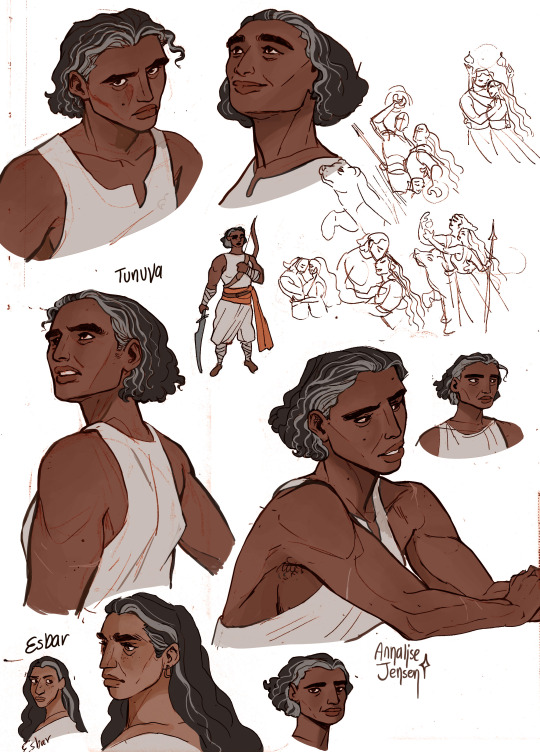

did you miss my sketch dumps? I have been reading A Day of Fallen Night, ohohohoh boy. so many hot ladies in this book. Also Canthe is terrible but I love hate her <3
#canthe is terrible but she moves the plot so we love her for that#adofn#tpotot#a day of fallen night#the roots of chaos#tunuva#tuva#canthe#esbar#wulf#wulfert glenn#thrit#glorian#glorian berethnet#my art
4K notes
·
View notes
Photo

A shaman watches TV inside the Tos Deer ( nine skies) association in the Siberian town of Kyzyl, Republic of Tuva, Russia. Photographed by A. Abbas.
#photojournalism#siberia#photojornalist#shamanism#asia#tuva#russia#tuvans#a. abbas#northern asia#abbas
2K notes
·
View notes
Text
In theory, Kalyba should find it easy to hook up with someone. She’s a beautiful, immortal, powerful witch. Plenty of people would go for that! But she’s exclusively attracted to people who don’t want her back.
So important of Samantha Shannon to invent this sexy evil witch and then say “also, she’s a bit pathetic”. So important.
#kalyba only goes for people who are already taken#this is not a priory quote#kalyba#canthe#tpotot#adofn#a day of fallen night#the priory of the orange tree#ead#eadaz du zāla uq nāra#eadaz uq nara#tunuva#tuva#tunuva melim#galian berethnet
1K notes
·
View notes
Text

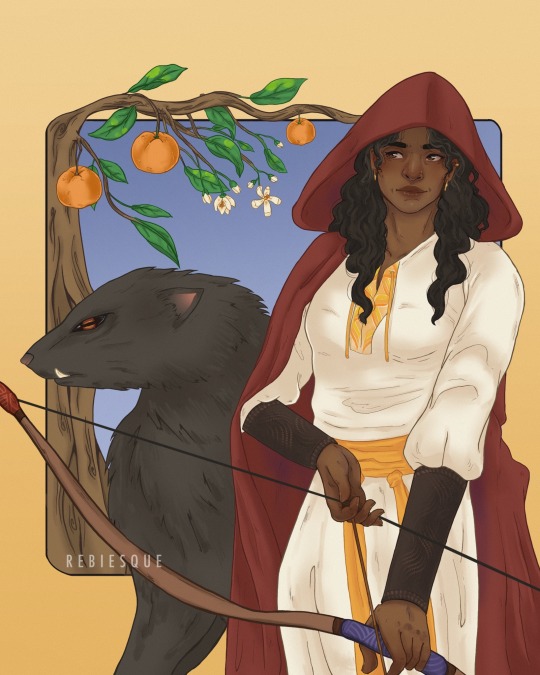
Tuva and Esbar 🧡🍊
#adofn#a day of fallen night#roots of chaos#samantha shannon#tunuva melim#esbar du apaya uq-nara#tuva#esbar#my art#ichneumons#ID credit: maileesque#id in alt text
606 notes
·
View notes
Text
The Russian state using ethnic minorities as cannon fodder - with a focus on Buryats
Article written in 2022, update on the Free Buryatia Foundation in September 2023 given at the end of the post.
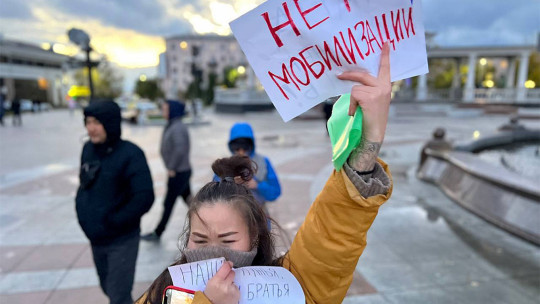
Putin announced on October 14th 2022 that by the end of October, his partial mobilisation process would be complete
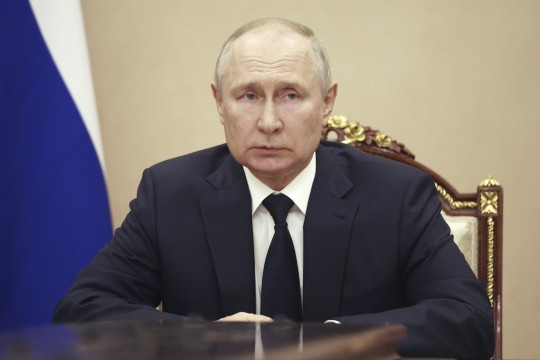
The recruitment target was 300,000. 222,000 were recruited, and it was claimed that there'd be no more plans for future recruitment
The mobilisation process soaked nation wide outrage which lead to mass protests.
It drew in criticism from some of the Russian political elite
The mobilisation process disproportionately affected ethnic minorities/impoverished regions (many impoverished regions have a high ethnic minority population)

Tuva Republic
Regions that held high populations of ethnic minorities bared the brunt of war-related deaths.
Both Ukrainian media and authorities have levelled accusations at Russian ethnic minorities - that they committed war crimes in Bucha, Ukraine
This accusations was made in May 2022 by Lydmyla Denisova, Ukrainian ombudsman for human rights

Buryats and Chechens were being accused of this
This was a form of scapegoating (not to say they 0 ethnic minorities have committed war crimes in Ukraine of course)
The Free Buryat Foundation investigated this and produced a report that challenged the notion that Buryats were ever sent to Bucha, let alone being responsible for the war crimes committed
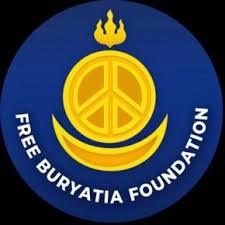
Victoria Maladaeva is the vice president of the Free Buryatia Foundation.

She said:
Dagestan, Tuva Republic and Buryatia Republic have the highest death tolls
Moscow, with 17 million, had >50 deaths.
Buryatia with only 980,000 had 364
A Buryat is 7.8 x more likely to die in the war compared to an ethnic Russian.
A Tuvan is 10.4x more likely
The biggest losses were at the beginning of the war and numbers gradually decreased.
Mobilisation was first and foremost carried out in ethnic republics
The day Putin announced this, authorities came to Buryatia at night, went into people's homes and took them from their beds.
No one was given draft notices
They even took men with multiple children, men from the same family
Endangered ethnic groups reside in Dagestan

There are very small communities of those people with populations of around 13,000
Despite this, those minorities were still drafted
There are also very small communities in the Sakha Republic.
They are so remote, helicopters are needed to be called for medical treatment
They almost never come because of how remote these communities are
Funnily enough, helicopters came immediately to draft those people upon Putin's announcement
Putin is a Russian imperialist through and through
None Russians are treated like second class citizens
Russian cultural chauvinism is seen even in small things - such as names
Putin would frequently mispronounce Kazakhstan's president's name. If you have an ethnic Buryat name for example, Russians are reluctant to use it, instead assigning you an "easier" Russian name

Kassym-Jomart Tokayev
Unfortunately, many of the people of Buryatia believe in the Russian narrative about Nazi ideology in Ukraine
It is one of the missions of the free Buryatia Foundation to help Buryats understand that this is Russian propaganda
The focus on Buryat/ethnic minority war crimes has a racial element
When an ethnic minority commits a war crime, their ethnicity is singled out
It should not matter the ethnicity of a war criminal
78 Buryat soldiers from the 11th air assault brigade were barred from terminating their contract
They were imprisoned in Luhansk.
Only Ilya Kaminskiy returned. The fate of the other men is unknown
The Free Buryatia Foundation knows they cannot help everyone but they do their best. They help people in terminating their contracts for example and have been quite successful in this.
The Free Buryatia Foundation was established to counter Russian propaganda and to protest the war.
People worldwide took an interest to this, so they founded the free Buryatia Foundation.
The Free Buryatia Foundation is the first ethnic anti war organisation in Russia
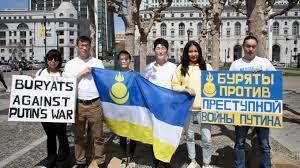
They aided in founding anti war organisations in other ethnic regions such as Tuva, Kalmykia, Udmurtia, Sakha
Many Buryats fled to Mongolia and Kazakhstan
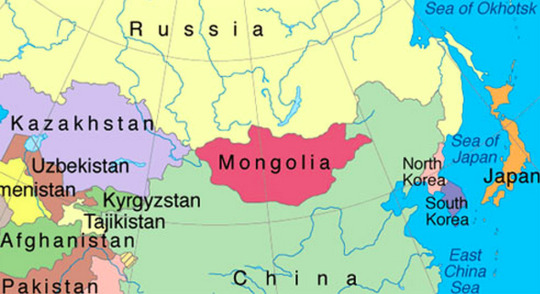
Some men were able to come back after being drafted, some were not
The economic situation for Buryatia is dire. It ranked 81st out of 85 of Russia's regions when it came to living standards
Buryats had to spend money on a list of supplies for war that Russia did not provide them
Very recently, on September 1st, Russia banned the Free Buryatia Foundation, labelling them as undesirable and anti Russian.
Here is the website for the Free Buryatia Foundation:
And here is where you can donate:
Please spread around or give what you can.
#Russia#Russian imperialism#russian colonialism#russian invasion#Ukraine#invasion of ukraine#russian invasion of ukraine#war in ukraine#Buryatia#Tuva#chechnya#Sakha#Yakutia#Kalmykia#Indigenous people of Russia#Asian Russians#indigenous russia#indigenous russian#Native Russia#Native Russians#Russian ethnic groups#Free Buryatia foundation#Free Buryatia#Anti Russia#Russian propaganda#human rights#Russian ethnic minorities
147 notes
·
View notes
Text
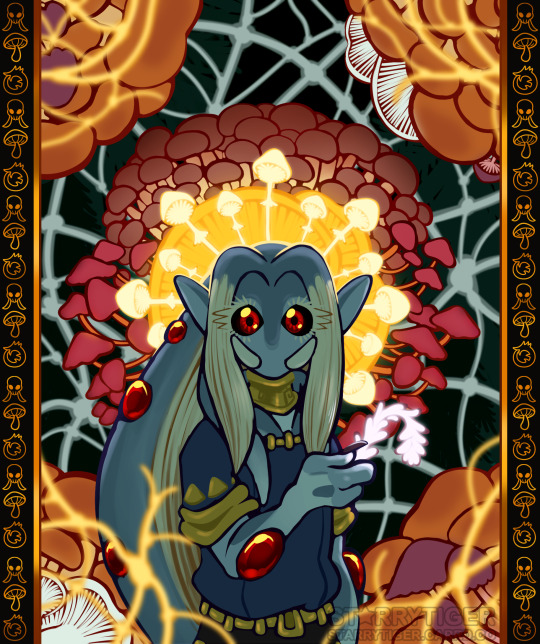
Death, Decay, Change
15 notes
·
View notes
Text
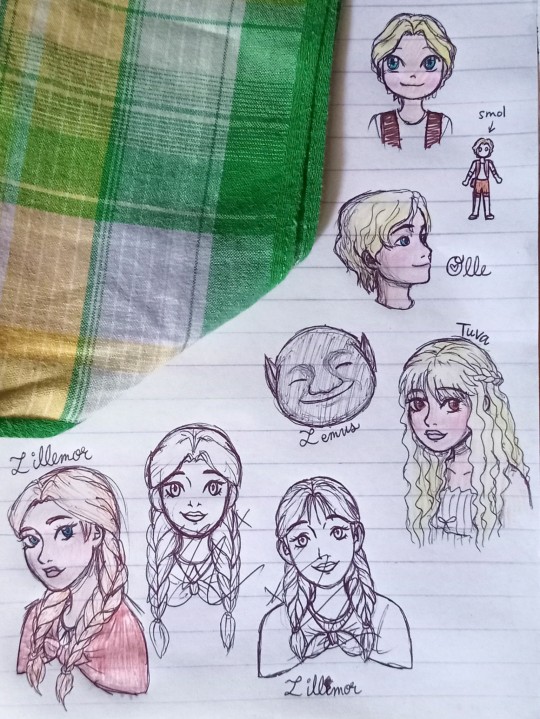
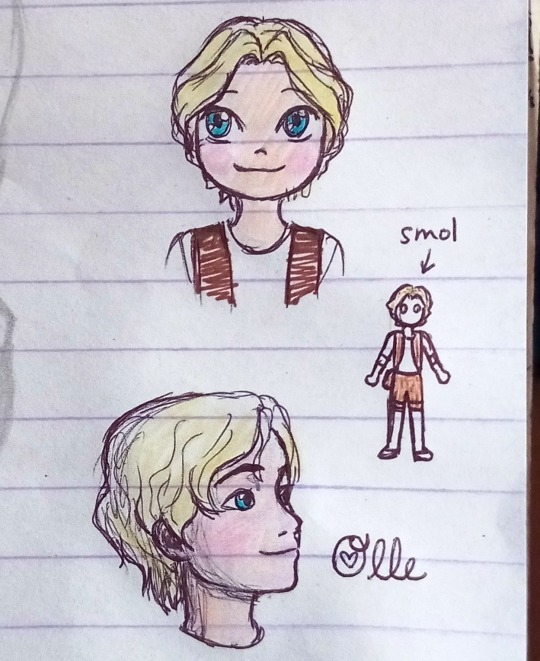
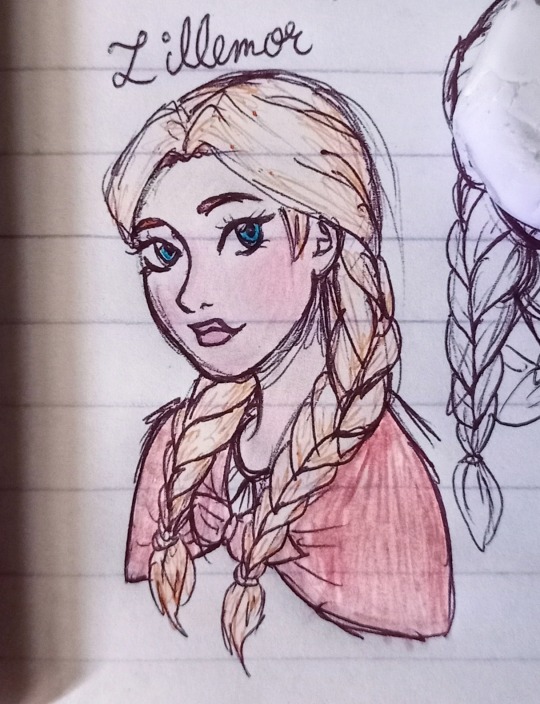
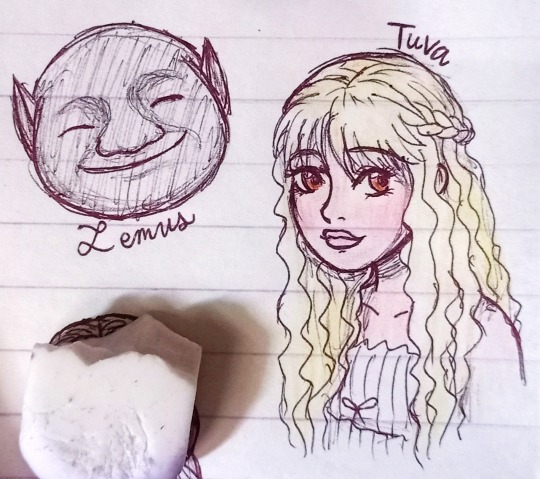
Slightly messing drawings of some Bramble: The Mountain King characters. Always love games about folklore. This one is about Nordic folklore. This is also a horror game so be warned, which is to be expected when it comes to folklore.
Why can't my phone's camera ever capture the blushes I put on my drawings? :/ I always have to up the saturation for these. They're pinker irl than what you see here. At least it did Olle justice.
I love Olle, btw. He's so cute. Just a lil baby. 🩷 I tried drawing Lillemor from memory there. lol
#bramble the mountain king#bramble the mountain king olle#bramble the mountain king lillemor#bramble the mountain king tuva#tuva#bramble the mountain king lemus#folklore#nordic folklore#drawing#game#video game#indie games#shythalia#art#traditional drawing#traditional art#fantasy#fan art#fanart#horror games
64 notes
·
View notes
Text
Anti-War Initiatives Led by Indigenous Peoples in Russia are Inherently Anti-Colonialist
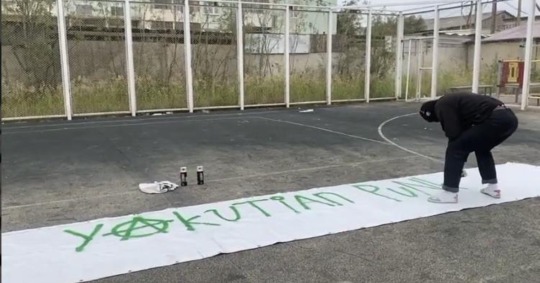
By Anonymous
Anti-war movements in Russia immediately appeared at the onset of Russia’s invasion of Ukraine. Notably, these initiatives were and are by and large driven by preexisting feminist organizations (The Social Democratic Alternative, Eighth Initiative Group, Eve’s Ribs, the Agasshin Project, and the Feminist Translocalities Projectto name a few) and Indigenous and ethnic minority groups founded in direct response to the war. While currently there is no sole, centralized movement uniting the country’s numerous Indigenous Peoples and ethnic minorities, the appearance of various anti-war organizations, media accounts, and content, and action points to a rather unprecedented impetus of collaboration and solidarity focused on condemnation of the Russia state’s actions.
Further unparalleled is the overt and widespread presence of anti-colonialist and anti-imperialist sentiment as activists and laypeople alike criticize Russia’s attack on Ukraine and probe into the federation’s enduring issues of coloniality in quotidian life (racism, discrimination, xenophobia, and the violence they encourage). The invasion of Ukraine is not new or covert; rather, it represents the next steps in a long and ongoing history of Russian colonial understanding of a sovereign Ukrainian nation and distinct Ukrainian culture as a threat needing mitigation. These anti-war, staunchly anti-colonialist, and Indigenous-led initiatives are small in number but increasingly outsized in influence. From the use of native languages in anti-war campaigns to overt castigation of Russian chauvinism, these initiatives point to resistance to both the ongoing war and colonial policy. Their importance cannot be overemphasized since their efforts contribute to a better understanding of, and subsequently, better capacity for dismantling Russian coloniality.
Russia’s claims that it is fighting “neo-Nazis” in Ukraine is a blatant distortion of history, and the irony of this claim is far from lost on many Indigenous Peoples of Russia who grew up in a society steeped in Russian colonialism and who witness growing ethnic Russian nationalism (often abetted by right-wing and neo-Nazi sentiment) on societal and institutional levels (e.g., ethnic Russian nationalism enshrined in the federal constitution since 2020).
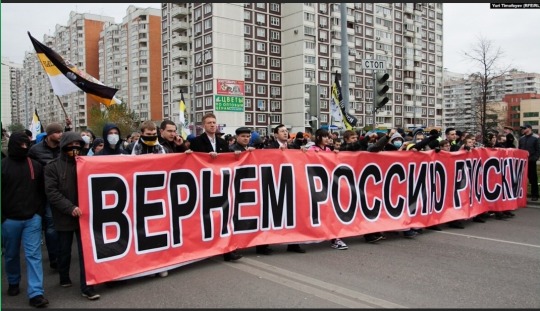
Image: Russian ultranationalist march in the "Russia March" in Moscow on Nov 4, 2011. The banner they carry reads "Return Russia to [ethnic] Russians". Yuri Timofeyev for RFE/RL.
Anti-war movements like the Free Buryatia Foundation––the first anti-war initiative started in response to Russia’s invasion of Ukraine and on behalf of an ethnic group––emphasize this paradox and use the current conflict to advocate for a reckoning with historic racism and imperialism within Russia’s own borders. The objective of The Free Buryatia Foundation(Buryats Against the War) is twofold––to fight against the war on Ukraine and to “solve the problem of racism and xenophobia in Russia”. Founder and president of the fund, Alexandra Garmazhapova, says such an organization was needed for a number of reasons: the disproportionate number of Buryat soldiers dying in the war, the overrepresentation in media of Buryats as the main perpetrators of violence, and the latent systemic factors that usher Buryats into military service.
“Our region has been the leader in losses since the very beginning of the war, and it was important for us to declare that we are Buryats, and we are against the war. We consider the war with Ukraine xenophobic, because if Russia had a tolerant society, the idea of ‘denazification’ of Ukraine…would not find support among Russians. The Indigenous Peoples of Russia have been and are being subjected to ‘denazification’, which in reality is complete Russification. We understand what it’s like to have your language and culture banned… Residents of ethnic republics who go to Moscow and St. Petersburg face xenophobia and racism… But at the same time, military personnel from [the ethnic republics] are sent to Ukraine to protect the ‘Russian world’,” Garmazhapova said in an interviewin July.
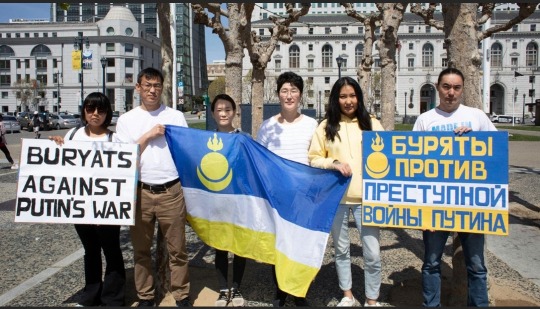
Image: Activists at a rally against the war in Ukraine in San Francisco holding signs that read "Buryats against Putin's [criminal] war" and the flag of Buryatia. Courtesy of Alexandra Garmazhapova's Facebook page.
The Free Buryatia Foundation tracks statistics on losses during the war, provides legal advice to help military personnel terminate their contracts, shares credible information to combat propaganda and misinformation, and strives to prevent Russian servicemen from going to Ukraine. The organization is very active on social media sites and regularly collaborates with specialists, activists, and other anti-war initiatives on live-streamed discussions, data collection and sharing, and crowdsourcing.
Most of the Free Buryatia Foundation’s team resides outside the Russian Federation, which shields them from Russia’s growing restrictive legislation, namely “fake news” laws, which criminalize the dissemination of false information about the Russian army and is used by the state to censor, detain, and imprison those who oppose the war. For that reason, there are no large-scale Indigenous-led anti-war organizations or groups based in Russia. Disparate groups and media accounts exist though they tend to maintain anonymity and much of their activism work is shared or takes place on Instagram (only accessible with use of a VPN) and Telegram. These include, but are not limited to the Sakha Pacifist Association, New Tuva Movement, and Asians of Russia(which existed prior to the war but shifted its focus to information about the war and protests), which share information specific to their respective regions in addition to sharing information among each other.
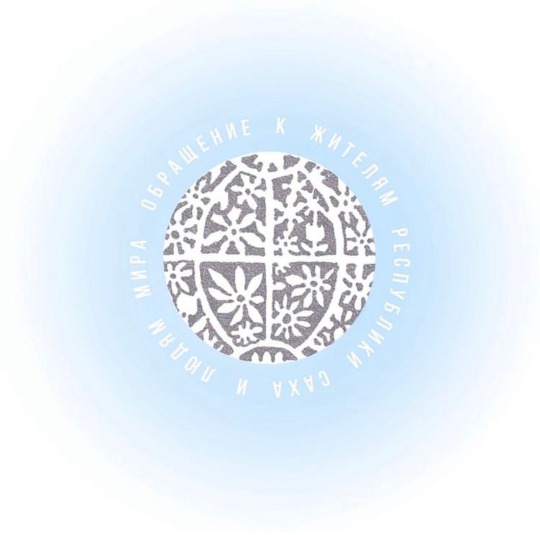
Image: Symbol of the Sakha Pacifist Association with text reading "An appeal to the residents of the Sakha Republic and the people of the world." Courtesy of https://www.instagram.com/sakha_pacifist_association/

Image: A post from the New Tuva Movement's Instagram page with text reading "Tuvinians against war!" Courtesy of https://www.instagram.com/new_tuva/
Indigenous individuals are actively engaged in anti-war actions though they are targeted by the Russian Federal Security Service and the Center for Combating Extremism (unit in the Ministry of Internal Affairs). The social media pages for various groups often crowdsource funding these activists need for legal aid. While the groups are not organized or affiliated, through their sharing of each other’s posts and through collaborations, they’re forming a kind of network––one that is able to exist under the current Russian state. Through posts on social media are seemingly low-impact, these groups are harnessing social media as a tool to disseminate information restricted by the state and state-run media and building networks on platforms that are relatively accessible.
There is no single position towards the war among Russia’s different Indigenous groups. These groups are often asked how individuals, who carry out demonstrations with signs saying “Tuvinians against the war”, or nameless admins, by using names such as Sakha Pacifist Association or New Tuva Movement, are able to speak for an entire people group. “These action[s] raise the rebellious spirit of the people. [They’re] very important demonstrations and actions for the entire people, as well as a message to the whole world,” wrote sakha_vs_war. The evocation of one’s nationality or cultural background is yet another tool for appealing to the public. The state and regional governments also utilize this tool in their co-opting of national cultures broadly, and of organizations such as the Russian Association of Indigenous Peoples of the North (RAIPON) and the Buddhist Traditional Sangha Center of Russia specifically, in support of hostilities against Ukraine. Identity, language, and culture are effective tools for anti-war movements in this particular case as initiatives consistently underline the imperial nature of this current war.
Given Russia’s history and continuing legacy of colonial language policy inherited from the Russian and Soviet empires (which systematically afforded/s primacy to the Russian language at the expense of native languages), anti-war slogans in Indigenous languagesare part of reclamatory cultural education which is, at its core, anti-war as it is a struggle against colonialism. The struggle around national languages in Russia is inextricably tied to state-sanctioned xenophobia and Russian supremacy. State language policy has become increasingly restrictive on native language education as Putin proclaimed in 2017 that Russian “the natural spiritual framework of the country” and that “everyone should know it”. Then, in 2018 three amendmentswere made to Law No. 273 “On Education in the Russian Federation,” which made Russian language learning compulsory at the expense of native languages. National or republican sovereignty movements of non-Russian, and overwhelmingly Indigenous, ethnic groups are thus intimately intertwined with language and cultural sovereignty, making language and culture significant areas the state and its security forces carefully scrutinize. Therefore, with this context, struggles for regional authority or autonomy and the anti-war struggle are innately linked.

Image: Anti-war poster with text in the Buryat language. By Yumzhana Sui for Agasshin.
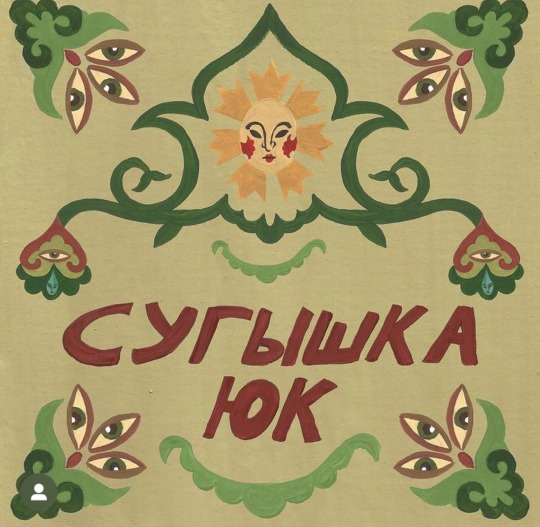
Image: Anti-war poster with text in the Tatar language. By Alisa Gorshenina for Agasshin.
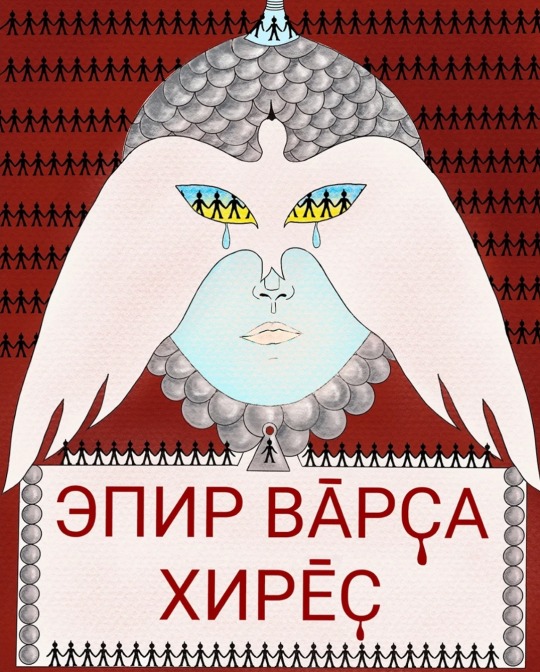
Image: Anti-war poster with text in the Chuvash language. By Polina Osipova for Agasshin.
For many activists, printing and disseminating anti-war messages in Indigenous languagesis not only symbolic of the resistance against the colonial Russian state, but also a rallying call to compatriots who might support the war or who do not openly oppose it. The Agasshin Project published a series of anti-war postersin Indigenous/national languages created by speakers of the languages (Buryat, Kalmyk, Udmurt, Chuvash) since anti-war activities in Indigenous languages “can be instruments of resistance to both the current war and colonial politics”. Aikhal Ammosov, a Sakha musician and activist, has been tried twice and is awaiting a third trialfor his anti-war picketing and performances in Sakha, Russian, and English. Ammosov was first fined for “hooliganism”, then for “discrediting the Russian armed forces”, and he currently awaits trial and could possibly face up to three years in prison for his most recent art performance involving a banner reading “Yakutian Punk Against WAR”.

Video still posted on Ammosov's Instagramaccount in which he spraypaints a banner with the text "Yakutian punk against war."
Following Russia’s February 24, 2022 invasion of Ukraine, activists around the world began publishing texts about colonialism, racism, and violence in Russia with fervor. Though these activists and groups are far from monolithic and cater to regional, historical, and culturally specific needs, these ideas spread and grow horizontally across the sphere of Russian influence, allowing for grassroots collaboration, collectivization, and support to grow.
#indigenous#indigenous russian#culture#indigenous russia#russia#important#colonization#fypシ#fypage#landback#Tuva#Sakha#Yakutia#Baryutia#indigenous people#indigenous resistance#indigenous rights#powerful
232 notes
·
View notes
Text
According to the officials of the Buryatia region in russia, there is no such thing as "partial" in the mobilization there. Ruzzia is sending to war every male:
- Teens and students with or without military experience.
- Fathers, even those who are the only ones supporting the family.
- Seniors.
- People with or without health issues, people with disabilities.
Literally all men, young or old, healthy or ill, able-bodied or in a wheelchair.
Meanwhile Tuvans are reporting that some villages have no men left at all. All were taken to war.
Neither Tuvans nor Buryats are white. Tuva and Buryatia are poor, underdeveloped Siberian republics in the East.
Ruzzia is committing a genocide of their own indigenous people.
Meanwhile Moscow, that is 97-98% white and wealthy, has barely any conscripts taken.
201 notes
·
View notes
Text
September 25th, 2022
The cries for help of Russia's national minorities: "We will stop existing"
"In small villages, with two or three streets, they have taken all the men" • Putin's draft mobilization punishes regions like Yakutia, Buryatia and Dagestan.
On the day after declaring partial mobilization in Russia, a member of the Duma [Russian Parliament] and ex-mayor of Jakutsk, in Siberia, protested that the number of reserves that each region has to send to the front [of the war in Ukraine] didn't match. She asked why regions like Novosibirsk only mobilize 0.27% of the men between ages 20 and 59 and, at the same time, Yakutia has to mobilize 1.66%. In addition, she added, why are precisely the most disadvantaged towns of the north of Yakutia where the proportion of men called to war is higher? "In villages of the Artic, with 300 inhabitants, they take 47 men. I know what it means to live in the north at -55°C [-67°F] and, without the men, families will have a very hard time. What is the logic behind these numbers? What kind of proportionality are we talking about?"
Yakutia, located north of the permafrost and almost 8,500 km away from Moscow, is a land rich in natural resources (diamonds, uranium, hydrocarbon...) and the immigration of workers for the extraction businesses has left Yakuts and Evens, the indigenous peoples, as a minority in the cities of the centre and south of the Republic. On the other hand, they are the majority in the towns of the north, from which they are now being sent en masse to the frontline.
We have talked to Aanis, a girl from a town of 500 inhabitants where 35 men have been called to war: "They've taken almost all young men from the town, of local ethnicities (Evens and Yakuts). It was very unexpected, nobody could have seen something like this coming. Before the mobilization, people from the town were not interested in the war, it's hard enough to survive. We were worried about everyday problems: hunting, how the vegetables were growing... Now everything has changed, we are shocked."
Nikolai, a man from a village in the north of Yakutia, answers resolutely when we ask what has happened: "We had never seen before what is happening now, not even in the Second World War. They have sent all the native men to the front." I ask him for more details: "My village is inhabited only by Yakuts and Evens. We're less than 500 people, out of which only 154 are of working age, including women. They have called to the front 65 people, almost all the men between ages 18 and 60." He adds that families don't know how they will survive this winter. "It reaches -60°C [-76°F], and we don't have centralised heating or water pipes. We use ovens to warm up and it's usually men who take care of that. We live from hunting. Who will hunt now? What will we eat? Nobody knows."
I ask him why does he think the authorities have decided to take them and not others: "Because we live in remote and very small villages, with no Internet; there are no lawyers here or organizations that defend us. Many of us don't speak Russian or English. They probably calculated that mobilizing us would have little repercussion: very few people would notice the absence of some minorities, even if they disappear completely. In fact, there's already few of us left.
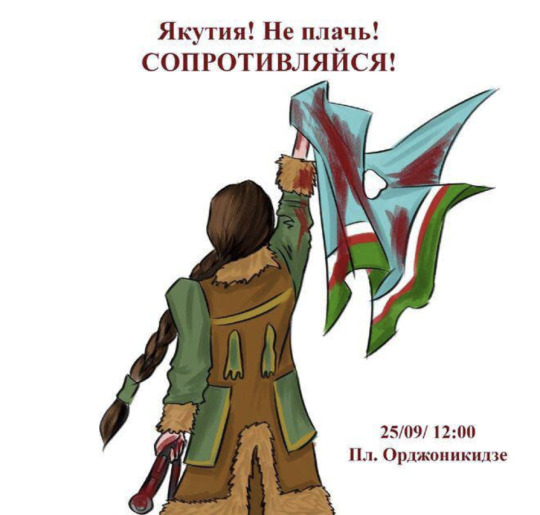
Poster calling for a protest of the Free Yakutia Foundation: "Yakutia! Don't cry! RESIST!"
In Yakutia, women have taken the streets to protest. They stand their ground. And they have done so, shouting "no to genocide!"
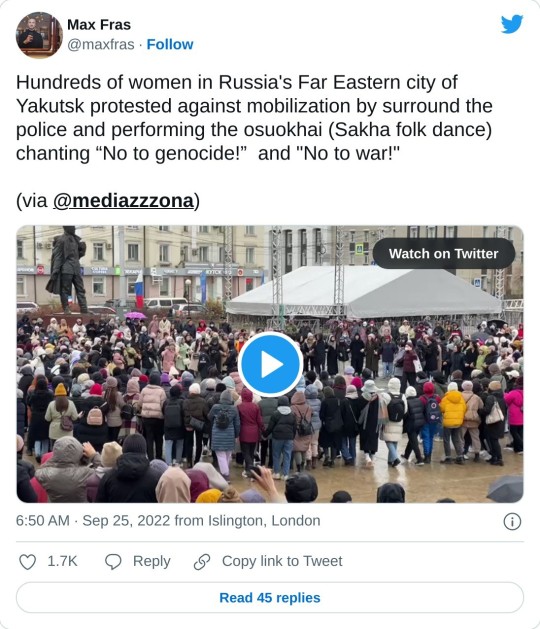
General mobilization in Buryatia
In Buryatia, a republic in the south of Siberia, bordering Mongolia, with a 35% native population of Mongolian origin (Buryats), their situation is just as harsh. "The mobilization in Buryatia is general, not partial", declares Aleksandra Garmazhapova, founder of a local NGO. Viktoriya Maladaeva, coordinator of the Free Buryatia Foundation, confirms it: "They're not calling up only reserves: they mobilize students, disabled people, and people who have never had any relation with the army. In small villages, with only two or three streets, they have taken all the men. There are families where they've called up the fathers and sons." She explains that many men were taken to the recruitment points during the night: "Then people started calling each other, and those who could drove their car to Mongolia. Others have hidden in the forests, in the taiga."
To answer to this situation, the ex-president of Mongolia (2009-2017) Tsakhiagiin Elbegdorj published the following message: "I know that since the beginning of this bloody war, the ethnic minorities that live in Russia are the ones that have suffered the most: the Mongols of Buryatia, of Tuva and Kalmykia have suffered. They have been used as cannon fodder. We, the Mongols, will welcome you with open arms and hearts. Our borders will stay open."
To the question of why she thinks Buryatia is disproportionately affected by the mobilization, Maladaeva answers without a doubt: "Because we are an ethnic minority and for Putin we are worthless [...] And that's the same in other "ethnic republics": right now we're getting calls from activists from Kalmykia, Chuvashia, Yakutia, Tuva... On the contrary, in the Irkutsk region (where there is a Slavic majority without notable minorities), there's silence, even though it borders us. Why?"
Dead in combat
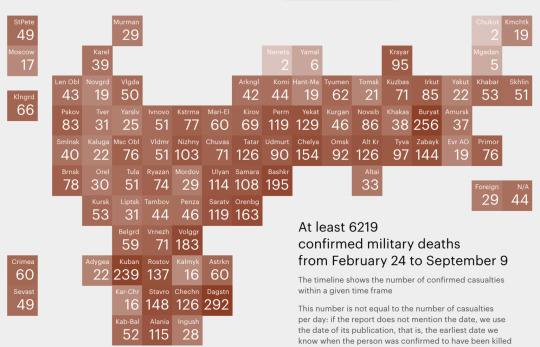
"Russian victims in Ukraine". Data compiled by Mediazona.
We must highlight that, until Putin signed the decree to mobilize reserves last Wednesday, going to fight in Ukraine was voluntary and paid. Those interested signed a contract with the Russian army and got paid a monthly salary between 130,000 and 200,000 rubles, depending on the region.
These salaries might not be much in Moscow, but they are a fortune in the most deprived areas. In the Russian capital city, the average monthly wage is about 115,009 rubles, three times the average monthly wage in Buryatia. If we look at unemployment rates, we see how it's 1.5% in Saint Petersburg while in Northern Caucasus republics, such as Ingushetia, it's as high as 30%. In the context of these economic inequalities, a result of highly centralized policies that center the economic wealth around the cities where political power resides and regulate the periphery to misery, it's no surprise that Buryats and Caucasians see an opportunity in an army wage, and knowing that in the worst of cases, if they die in combat, their families will receive (in theory) a compensation of 7 million rubles and a pension.
These economic reasons explain, in part, why the two regions with the most soldiers who died in combat in Ukraine are Buryatia and Dagestan (in the northern Caucasus). According to official data compiled by the Russian news portal Mediazona, 6,219 Russian soldiers have died in total in the war in Ukraine. From Buryatia, 256 have died (out of a total of 1 million inhabitants), and from Dagestan, 292 (out of 2.5 million inhabitants). These numbers contrast highly with the 17 dead soldiers from Moscow (12 million inhabitants) or the 49 deaths from Saint Petersburg (5 million inhabitants).
"We are the empire's trash"
Another factor that deepens the marginalization of minorities in Russia, that could have contributed to their disproportionate enlistment, is the prevailing racism in Russian society. Maria Viushkova, analyst of the Free Buryatia Foundation, declared in an interview: "The best alternatives in Buryatia for finding a job are either emigrating to South Korea or joining the army. For us, it's difficult to find work in other regions of Russia, where Buryats have to face discrimination and racism: they don't hire them, they don't house them, they limit their education. Often, Buryats who have tried their luck in other regions of Russia are forced to come back."
Aslan is a man from Kabardino-Balkaria, near Dagestan. He confirms that racism towards Caucasians is noticeable in Moscow, where he worked in some years: "It's constant. At work, first they looked badly at me, it took them a while to trust me. And when they knew me well, sometimes they spoke badly of Caucasians using a slur that they use to define us, "chernojopie" (black butts), not even realising I was there. In the subway, I have had problems with nationalists because of my looks. And my child has had quarrels with his friends for not being "Russian".
I ask him why he thinks it's them and Siberian minorities who are the most affected by this war. He's resolute: "Because we are the empire's trash to the Kremlin, and this is a way to get rid of us." And he adds: "But I don't understand why the Northern peoples don't rebel against Moscow, the empire has also wanted to destroy them. I think mobilization hasn't been as numerous in our republics in the Caucasus as it has in the Far East because they don't dare to, they know we'll stand up to them."
Aslan is probably right. The Caucasus is a potentially explosive region, where there was for years a Jihadist armed group made of young radicalized people with no hopes for the future. Authorities are not interested in feeding discontent and rage among these young people.
But in the Far East and in Siberia the situation is different, and the natives make a request of us. When I asked Nikolai, from the village in Yakutia that has been left with no young men, how could we help them, he said: "Please, report about the minority nations. If all men go to war, the genetic reserve of our people will be gone. In 20 years, or 40 years, our language will also go extinct. We will stop existing."
#war in ukraine#ukraine invasion#national minorities#ethnic minorities#russia#racism#yakutia#buryatia#dagestan#siberia#indigenous#evens#yakuts#tuva#kalmykia#kabardino-balkaria#caucasus#stateless nations#💬#genocide
237 notes
·
View notes
Text
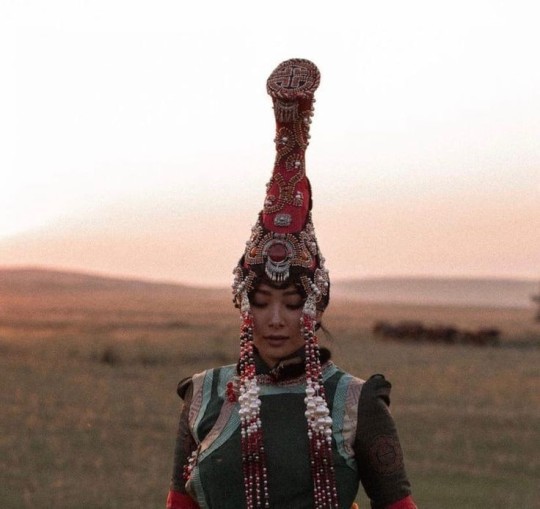

тувинец
8 notes
·
View notes
Text

Tuva and Esbar
2K notes
·
View notes
Text
•Bramble: The Mountain King

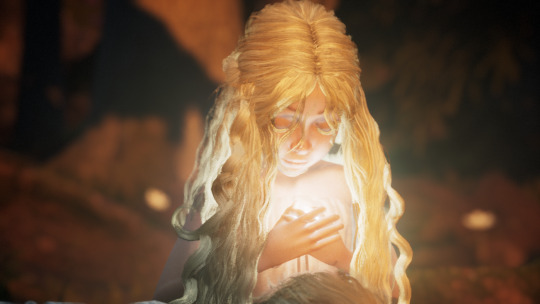

18 notes
·
View notes
Text
Inysh pagans praying to the Lady of the Woods to save them. But the Lady of the Woods is not paying attention to them. She’s trying to seduce a MILF. Unsuccessfully.
#this is not a priory quote#canthe#kalyba#tunuva#tpotot#a day of fallen night#adofn#tuva#tunuva melim#roots of chaos
1K notes
·
View notes
Text
*furiously plays banjo in the middle of a battlefield amidst mortar bombardment*
“Aww shit, gonna need some backup. Any word on those throat singers? We need them here now!”
*Huun Huur Tu shows up in a van along with various other Tuvan, Mongolian and Buryat musicians and throat singers dressed in traditional Mongolian clothing.*
“Finally! Maybe this’ll give us a chance.”
#dougie rambles#personal stuff#my poor attempt at a joke#bard#banjo#guitar#musical instruments#music#unreality#Huun huur tu#throat singing#Tuva#tuvan#Tuvan throat singing#mongolia#buryatia#Mongolian throat singing#world music#what#no context#this sounded funnier in my head#shitpost#highbrow shitposting
3 notes
·
View notes
Text
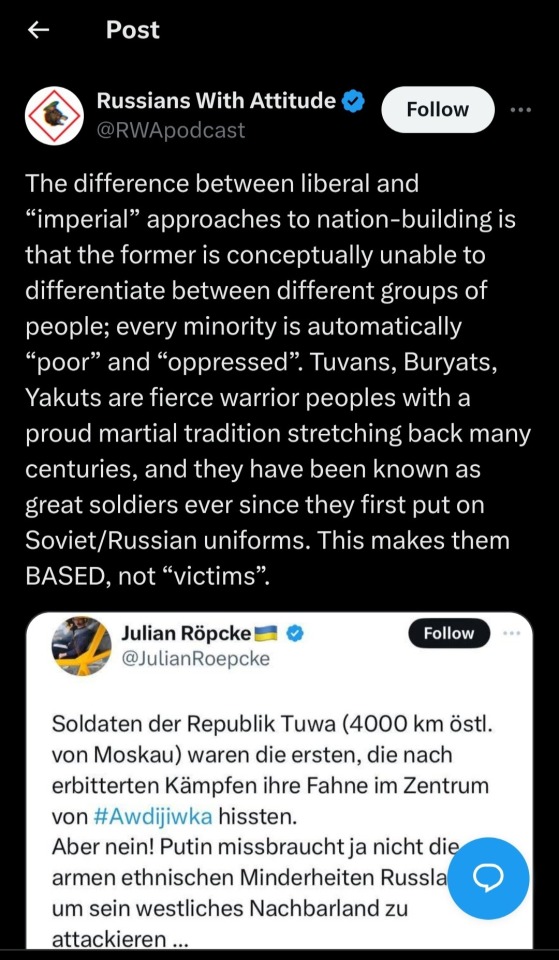
Russians pretending like the way they treat their ethnic minorities is some sort of Gold standard is fucking comical. Yes, Buryats, Tuvans and other ethnic minority groups being disproportionately mobilised in an imperial war by their coloniser so privileged Muscovites can never face the war themselves is so BASED ! Tell that to all of those Buryats/Kalmyks/Tuvans etc protesting and fleeing the country to escape being drafted.
Anyways
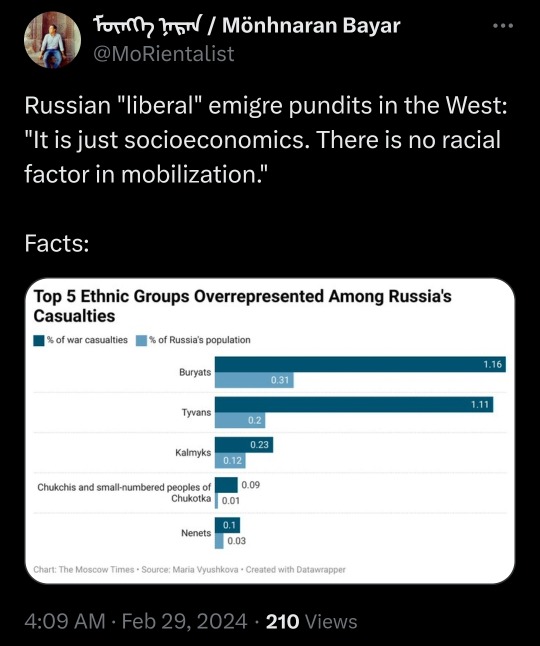
So "BASED"!
#Russia#russian invasion#Ukraine#Russian imperialism#russian colonialism#russian agression#Buryatia#Tuva#Kalmykia#Chukotka#Nenets#Chukchi#indigenous russia#The Russian couldn't even stop themselves from being racist in the tweet what the fuck is “fierce warrior people” oh my god
76 notes
·
View notes